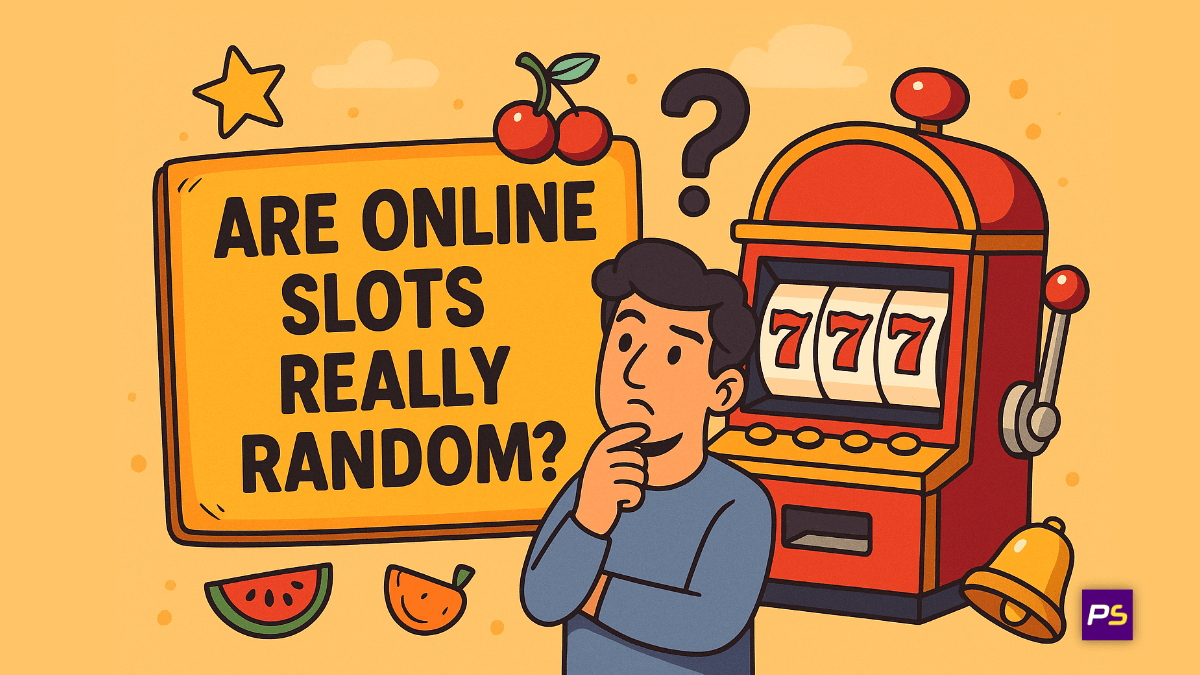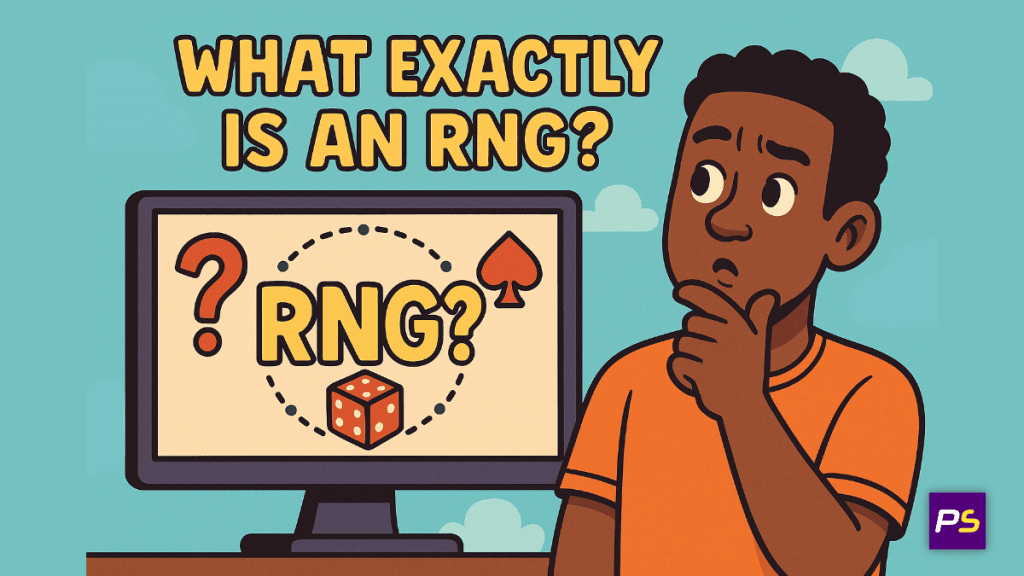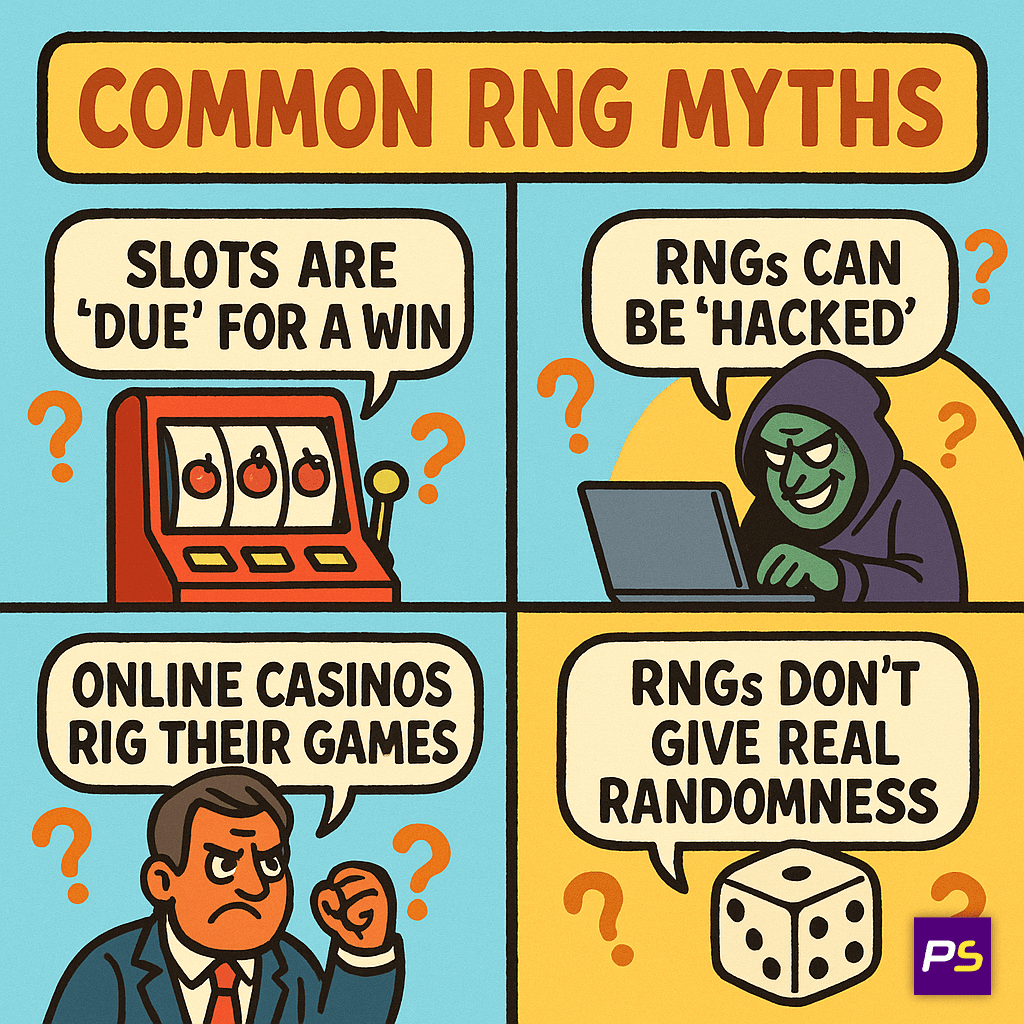Are Online Slots Really Random? Let’s Talk RNG

Let’s cut through the spinning reels and flashing lights for a minute. Have you ever wondered what’s actually running the show behind those slot games? It’s not luck or magic. It’s a clever little piece of tech called the Random Number Generator, or RNG for short.
If you’ve ever questioned whether online slots are rigged, manipulated, or somehow watching you (creepy, I know), understanding how RNGs work will clear the air. So let’s unpack it, layer by layer.
What exactly is an RNG?
An RNG is a software algorithm designed to generate a constant stream of random numbers, usually at a high rate, thousands per second, even when not in use. It’s like a digital dice roller on steroids.
The RNG’s job is simple but vital: it produces a value that determines the position of the reels the moment you hit that “spin” button. These values correspond to outcomes, such as which symbols appear and where. No two spins are connected. The RNG doesn’t care what just happened, who’s playing, or how much they’re betting. It’s like trying to guess the outcome of a coin flip while blindfolded and spinning in a chair. Pure randomness.
There are two main types:
- Pseudorandom Number Generators (PRNGs) – These are what most online slots use. They’re algorithm-based and rely on a seed number to start the sequence, but once they get going, the sequence appears completely random to the human eye (and to most computers).
- True Random Number Generators (TRNGs) – These use external physical data, like radioactive decay or atmospheric noise. They’re more common in cryptographic systems than in games, simply because they’re slower and more expensive to run.
So when we say slot outcomes are random, we mean they’re based on the output of a PRNG, fast, effective, and practically impossible to predict.

How does the RNG create the outcome of a spin?
Let’s walk through a typical spin on a 5-reel slot:
- You press the spin button.
- Instantly, the RNG generates a number (or several numbers, depending on how the game is coded).
- Each number corresponds to a specific reel position or symbol combination.
- The software translates those numbers into a visual result, which you see on screen.
- That outcome is final. No reruns. No recalculations.
Timing is everything. The precise millisecond you hit that button determines the number the RNG spits out. If you’d clicked a split-second later? Entirely different outcome. That’s how unpredictable it is.
And importantly, this process happens entirely before the reels visually spin. The spinning is just a graphical representation, like a theatrical performance of something that has already happened behind the scenes.
Wait, if it’s an algorithm, doesn’t that mean it’s predictable?
That’s a fair question. Algorithms follow rules, right?
Technically, yes. PRNGs are deterministic, which means if you knew the initial seed number and how the algorithm works, you could calculate future outputs. However, here’s the thing: those seed numbers are kept secret and often based on variables such as system clock values, making them practically impossible to reverse-engineer without access to the machine or server itself.
And let’s not forget: legitimate game providers aren’t just tossing code into the wild. Their software gets vetted.
Who keeps RNGs in check?
Licensed game developers, such as Play’n GO, NetEnt, Pragmatic Play, or Games Global, submit their RNGs for independent testing. These aren’t internal audits or self-made certificates. They’re verified by external, certified labs like:
These labs test the RNG over millions, sometimes billions, of simulated spins to check for statistical fairness, unpredictability, and consistency with the stated RTP (Return to Player). If any pattern, bias, or tampering is detected, it fails.
And once a game passes? It gets a compliance certificate. Many regulators (like the UKGC or the Western Cape Gambling Board here in South Africa) won’t allow a game onto licensed platforms without this approval.
Can online casinos tamper with RNG results?
Not legally. In fact, most casinos don’t even host the RNG themselves. Instead, the slot runs directly from the game provider’s servers, often through a model called RGS (Remote Gaming Server). That means the casino can’t tamper with outcomes, even if it wanted to. The game logic and its RNG live safely outside their reach.
If you’re playing at a licensed South African casino, like Betway or Hollywoodbets, the odds are you’re spinning reels powered by a tested RNG that no one, not even the operator, can fiddle with.
On the other hand, shady offshore casinos with no regulation? Totally different story. That’s why it’s worth double-checking licenses before you play.

Common RNG myths (and why they’re wrong)
Let’s quickly bust a few stubborn myths:
- “The game knows I just won and won’t pay out again.”
Nope. RNGs don’t “know” anything. They can’t remember what happened a second ago. - “If I keep spinning, I’m due a win.”
No such thing as “due.” Each spin is a fresh shot. - “RNGs can be hacked.”
In theory? Maybe. In practice? With modern encryption, external hosting, and constant monitoring? Highly unlikely, and illegal. - “Betting more increases my chances.”
Not in terms of outcomes. It may increase potential payouts if you do win, but it doesn’t influence the RNG’s decision.
So, what should players actually do with this info?
Here’s the takeaway: RNGs are the great equaliser in online slots. They don’t care who you are, how you play, or whether your cat just walked across your keyboard. They’re designed to be impartial, fast, and secure.
Your best bet is to:
- Stick to licensed online casinos
- Play games from reputable providers
- Accept that randomness means anything can happen—wins, losses, and everything in between
Because honestly? Knowing the system is fair makes the wild wins and the dry spells a little easier to trust.



